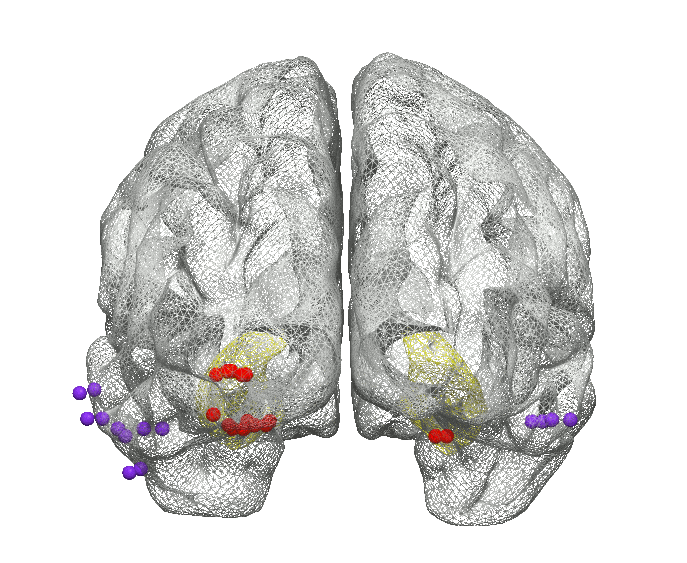Invasive EEG
Invasive recordings of the electrical activity of the human brain, known as intracranial EEG (iEEG) can be used to measure brain activity relevant to memory and cognition with high spatial and temporal resolution. This is important to capture the rapid neural processing that supports many cognitive events of interest, such as those that are necessary for the formation and retrieval of memories. Electrical stimulation can also be delivered through these electrodes, which can be used to directly test brain-behavior relationships and to develop stimulation-based interventions for cognitive impairment. Center N.O.I.R. supports collaborations of basic scientists, neurosurgeons, and neurologists as well as the specialized research equipment needed for these sophisticated experiments on human cognition.
Read about our various findings on the Publications page or check out these representative studies:
Rapid coordination of effective learning by the human hippocampus
Human hippocampal responses to network intracranial stimulation vary with theta phase

Above: Locations of representative iEEG electrodes used in an investigation of hippocampus and temporal cortex.
